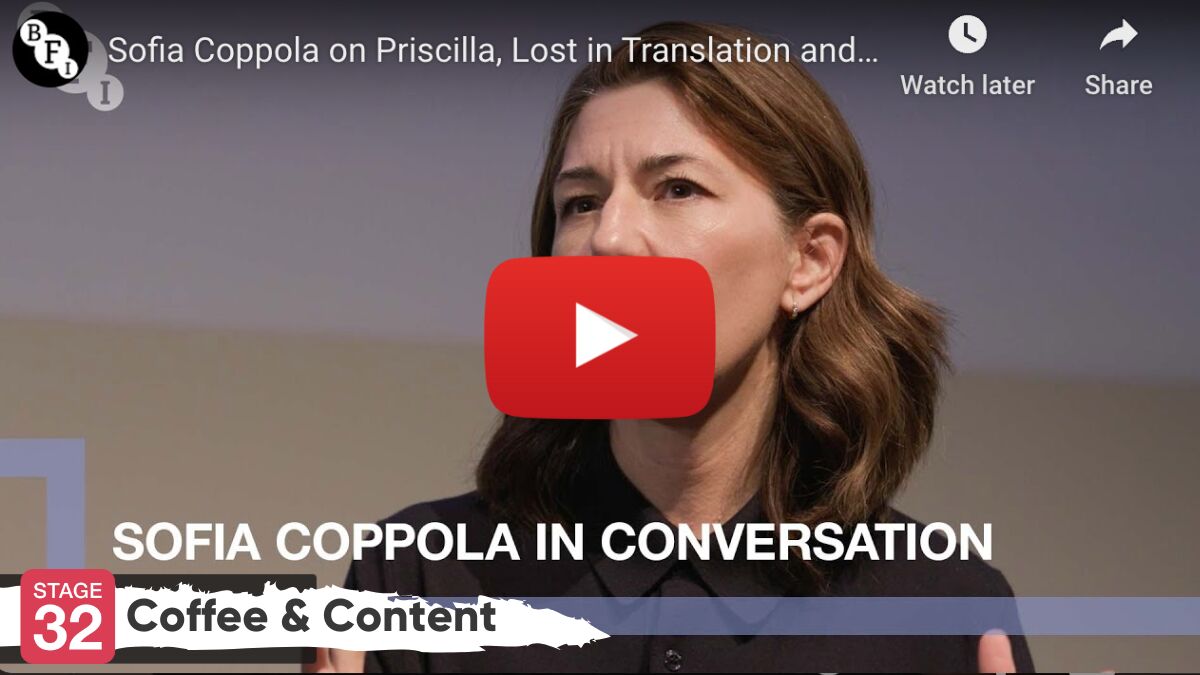How To Find Time To Write A Screenplay (Even With A Full Time Job)
Can’t Find The Time? You Got To Make The Time!
You have it all down. You have the story, plot points, and you may have even started the script. But you just can’t find the time to finish it. Like many of us, life just gets in the way…whether it’s work, family, or friends. What do you do when you can’t find the time to finish your screenplay?
Well, here’s the good news: everyone gets a fresh batch of 24 hours to use every day. With a little planning and a lot of discipline, you can steadily chip away at your script. Sometimes, it’s not time that’s slowing you down, but ideas or other script-related issues (formatting, dialogue, etc.).
Luckily, there are many (free) resources for you to learn how to tackle these issues, several of which you can find right here on Stage 32’s website.
In this blog, I will share the things I learned to incorporate into my busy schedule to work on my screenplay.
Are You Inspired?
When I was writing my first screenplay, it took me over a year to finish it. And a lot of that had to do with me letting procrastination trump my inspiration for writing the story. Working full-time as a litigation lawyer, I would come home every day and avoid my story like the plague. I would always tell myself I was just too mentally exhausted from the day to work on my story. Then I came across a quote that hit me like a brick wall: “Don’t work 8 hours for a company then go home and not work on your own goals. You’re not tired, you’re uninspired.”
That quote woke me up. It made me realize why I started writing the story in the first place, and why it was important to me to finish it. And guess what, when I sat at my desk and began writing, it all came out. What once was a difficult exercise turned into a flowing stream of consciousness.
So when you are facing difficulty writing your screenplay, first discover your inspiration. Without it, it doesn’t matter how much planning you do or the time you spend writing your story. Without your inspiration, you will find difficulty staying motivated to cross the finish line. Think about how you first thought of your story…what made you think about it? What made you think other people would want to read or watch it? What is the message you are trying to get across? Most importantly, who are you trying to reach, and why?
When you find your inspiration, you will find your story. It’s deep down inside you, and all you have to do is some soul-searching to find it.

You Have The Story, Just Don’t Know How To Put It Together
You have an awesome story in your head. You can see how it starts, where the beat points are, and how it climaxes in the finish. But you struggle in putting it down on paper. And because of that, you just can’t get around to working on your screenplay. A great source to learn how to get your story down onto paper is searching all Stage 32 has to offer in classes, webinars, and other blogs.
Here are also a few books that will really get you a head start in learning how to write your story:
- “Screenplay: The Foundations of Screenwriting” by Syd Field
- “The Screenwriter’s Bible” by David Trottier
- “That’s Not The Way It Works” by Bob Saenz
- “Save The Cat!” by Blake Snyder
- “Story” by Robert Mckee
These are some of the books out there that will help you gain the knowledge you need to write a structured screenplay. Remember to use the inspiration you have in making your story help drive your story. Think about who the characters are, and why they are that way. Think about why other people would want to watch (or read) your story, and how you would keep their interest from start to finish. And lastly, think about why you want to write this story. Why does it matter to you?
I made the mistake of rushing my first screenplay after learning the very basic elements of screenplay formatting and forming a skeleton outline of a story. I went straight to the computer and started typing. I quickly became overwhelmed and frustrated. I lost the motivation and let my frustration drown out my inspiration for the story. Once all that faded away and I focused on the why, writing the story became much easier and I realized I had to be patient in getting the story down.

Writing Doesn’t Have To Be All In One Place
For some writers, they write best as they are seated at their desk, with their keyboard in front of them, typing blissfully away into the computer screen. While this is the most common way people writers get their stories done, it is not the only way. Since I would find myself working 50 or more hours a week in the office, it wouldn’t always be easy for me to write my story on my home computer. But no matter where I was, whether at work, driving, at the gym, or running errands, I would always be thinking about my story and how to better improve my script.
What I learned to do is to find ways to multi-task. For example, if I am out running errands and think about a new idea, I would write notes on my phone on beat points I would like to add, or certain pieces of dialogue I would like to incorporate into the characters’ conversation. Other times I would use the voice recordings feature on my phone to talk to myself about points in the story that could change or be improved. And when I’m at the gym, I will pull up my script on my phone and read it while I’m on the spin bike or treadmill.
Finding ways to multi-task with your story in mind will help move your story along and get written down. You don’t have to be sitting down, typing on a keyboard to add to your script. Thinking about your script, saving notes, and integrating those ideas later into your script will all help get your story across the finish line. And most importantly, it keeps your inspirations for your story flowing and at the forefront of your mind.
One thing that helped me stay on track to progressively work on my script was making a schedule. For example, I dedicated every Friday night to working at least two hours on my script. For others, some would have a goal of finishing one page per day. Holding yourself accountable for sticking to this type of schedule will help you slowly but surely reach the final page of your story.
The hardest part about this is not doing the work, but staying disciplined in doing so. If you skip one Friday, you are tempted to skip the next, and so on. Your discipline in staying true to your goals goes back to whether you are truly inspired about writing your script. If you find yourself having a difficult time staying disciplined or motivated to write, focus first on your inspiration. Without inspiration and motivation, being disciplined or staying focused on your story will be hard to achieve.
Final Thoughts
Whether you are writing your first screenplay or your hundredth, keeping the motivation and inspiration to finish it will always be a struggle. With the right mindset and discipline, you can set yourself up to write a great story without struggling to find ways to pen to paper (or fingers to keyboard).
Remember to always stay inspired and find ways to keep thinking about your story even when you aren’t at your desk. We all have great ideas within us, but it is up to each of us to dig within us and find them; and most importantly, make time to create them.
Let's hear your thoughts in the comments below!
Got an idea for a post? Or have you collaborated with Stage 32 members to create a project? We'd love to hear about it. Email Emily at blog@stage32.com and let's get your post published!
Please help support your fellow Stage 32ers by sharing this on social. Check out the social media buttons at the top to share on Instagram @stage32 Twitter @stage32 Facebook @stage32 and LinkedIn @stage-32
| Coffee & Content: Sofia Coppola On Her Filmmaking Career |
| Red Carpet Roll-Out: January 2024's New Educators & Execs at Stage 32! |
Search Stage 32 Blog
There are now 4041 blog posts for you to enjoy. Search them all by tags below.
Acting, Advice, Cinematography, Coffee & Content, Composing, Contests, Distribution, Featured, Filmmaking, Financing, Inspirational, Networking, Producing, Screenwriting, Success Stories, Tips, Trending,Relevant Tags
Recommended Articles

How Stage 32 Script Services Make You A Better Writer

Insider Intel: 2026 Predictions

Insider Intel: The Studio War & The Rise of Indies

Insider Intel: Packaging your Project- The Chicken or the Egg Dilemma

What Stage 32's Community Is Really About (Beyond Scripts, Sets, and Showreels)

Stage 32 Featured at the 43rd Torino Film Festival!

State of the Industry 2026 Now On-Demand: RB & Geoff Break Down What’s Next for Writers!

Coffee & Content: Why Your Next Step Matters More Than the Perfect Step

4 Reasons To Have Audio Description On Your Film








